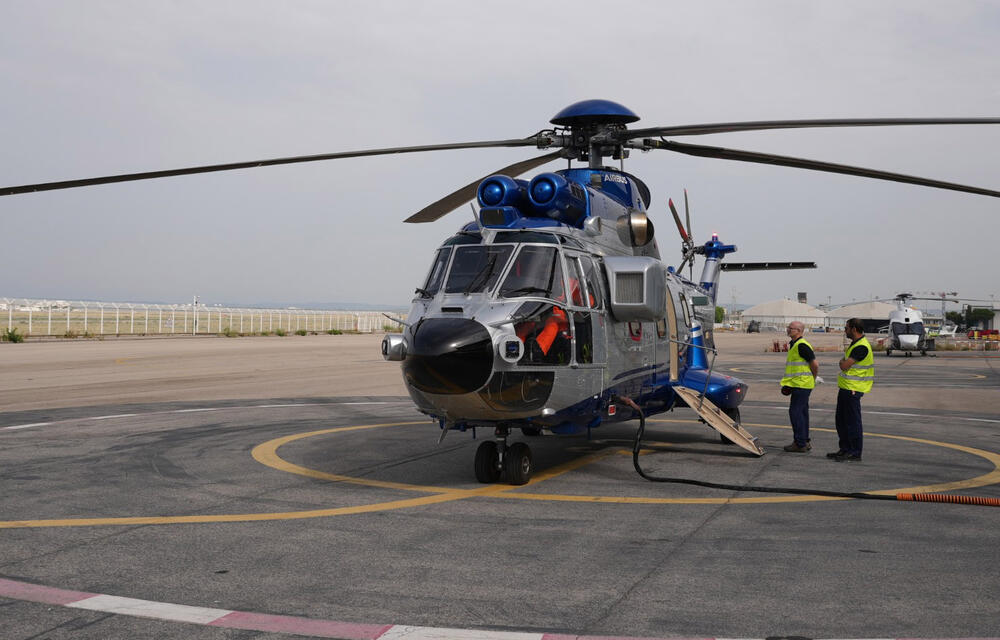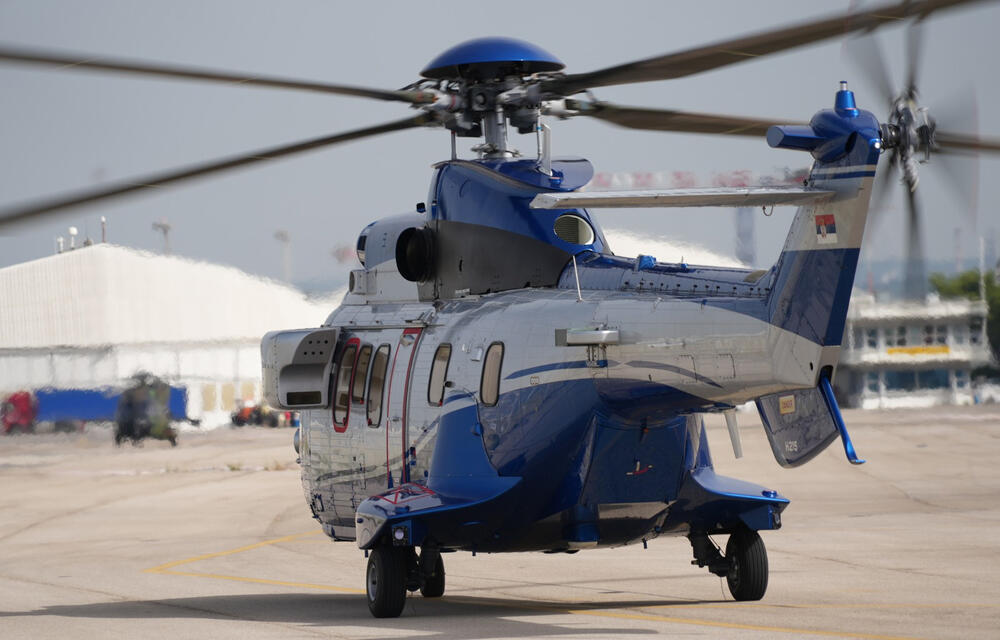Why is Serbia waiting for the Russian army, by Dmitry Bavyrin for VZGLYAD. 12.20.2022.
After the aggravation over the weekend, the situation in Kosovo returned to normal. But there are still extremely high chances that at any moment blood will be shed, a massacre will begin, and Belgrade will be forced to launch its own special military operation in northern Kosovo. However, while the Serbs are trying to negotiate with NATO. What does Serbia want?
On Tuesday, an important bird with a complex species classification flew into the Serbian capital - US Admiral Stuart Munsch. Until recently, he is a big Pentagon boss, now he is the commander of the US naval forces in Europe and Africa and the head of the NATO Joint Command in Naples, which covers the whole of Southern Europe, and before the reorganization was also responsible for the Balkans, including the regional Kosovo brand of the alliance - KFOR.
That is, he seems to be an official person, but it is not entirely clear who he represents: either NATO as an organization, or its southern command, or the leadership of the United States. However, talking with Serbian President Aleksandar Vučić, he will be aware of what - about the next aggravation in Kosovo . They happen there regularly, but the current one is closer to bloodshed than any other in the last ten years.
But the main question is not even this, but whether the possible bloodshed will flow into the Serbian NVO, during which the Balkan (very distant) analogue of the Minsk agreements on the fate of Donbass - the Brussels agreements will inevitably be buried.
There is reason to believe that Vucic does not want such a development of events. In general, few people want this, with the exception (and even then not a fact) of a part of the Albanian leadership of Kosovo. They dream of establishing full political and police control over three municipalities in the north of Kosovo populated almost exclusively by Serbs: Zvecan, Zubin Potok and Leposavich, as well as over half of the city of Kosovska Mitrovica with approximately the same ethnic composition. All together - this is Ibarsky Kolasin or Northern Kosovo.
Entry there to the Albanian security forces is prohibited by the same Brussels agreements that were concluded almost 10 years ago - in January 2013, and now they are breathing their last. First of all, because the Albanians, like the Ukrainians once, refuse a kind of federalization of Kosovo for the municipalities mentioned above. The Serbs are tired of waiting, their representatives left the authorities in protest, that is, legally, there is now anarchy in Ibar Kolasin. Pristina is trying to take advantage of this to legalize its "collaborators" there.
This is accompanied by raids by the Albanian special forces, noisy indignation of the Serbs, arrests, construction of barricades, blocking roads, maneuvers of the KFOR troops. At some point, it began to seem that the escalation of the conflict no longer depends on anyone, but goes by itself. If something is not done, blood will be shed.
Serbian Prime Minister Anna Brnabic, who is often suspected of being overly pro-Western, explains what is happening this way: barricades." Such statements are directed not only outside, but also inside the country: they are trying to reassure people, emphasizing that when the authorities communicate with the West, the national interests of the Serbs still remain a priority, otherwise some have already begun to see “malice”.
Last weekend, Belgrade held a rally under slogans of support for the Kosovo Serbs and fraternal unity with the Russians (“we are 250 million with Russians,” locals often joke). At the administrative borders of Kosovo itself, the action turned into an attempt to break through the police cordon. That is, the Serb police officers held back the Serbs who were eager to help the Kosovo Serbs - and all this within the framework of one country, one people, one cultural and economic space.
In other words, with a different order, the police and both parts of the Serbian people will merge in the ecstasy of irredentism: if Serbia starts its special operation, its victory will also look like the establishment of complete control over the Ibar Kolasin. On the other side of the Ibar River live under two million Albanians who communicate with Albania. And the Serbian army, even the strongest in the former Yugoslavia, will not succeed against them. At least one.
The protesting Serbs hope that one will not have to. Hence the huge number of Russophile appeals, although where is Russia and where is Kosovo. There are no common borders between the Russian Federation and Serbia - the most pro-Russian people in Europe are surrounded by NATO countries and no longer have access to the sea.
Yet for Kosovo Serbs, the expectation of the Russian army is almost a cargo cult, fueled by Yunus-Bek Yevkurov's historic march to Slatina , now the largest US military base in Europe. But Russian troops moved there from Bosnia, where they performed peacekeeping functions. Now this mission has been curtailed, which they prefer not to remember in Ibar Kolasin.
However, President Vučić could not forget about it. He vows that there will be "no surrender" in Kosovo, but it is unlikely that he really wants to risk and send security forces to Ibarsky Kolasin. This threatens Serbia with a war with the Albanians, and a conflict with NATO, and international isolation in conditions when it is a lone pro-Russian enclave.
And quite recently, the EU agreed on another economic assistance program for Serbia - the third in a row since the end of the fighting in Kosovo and designed for several years. Surely it has already been taken into account in the Serbian budget - too modest for a large political scope.
Belgrade and Brussels are playing giveaway. Vučić sent a request to NATO to send thousands of Serbian special forces to Kosovo to protect the local population. It is clear that NATO is categorically against it, but they are slowing down with an official refusal. Like the President of Serbia, Western leaders hope that everything will somehow resolve itself, because it has resolved itself several times, and therefore they are playing for time, because after their move Vucic will be forced to make his own.
Stabilization is possible if the Albanians agree to take a couple of steps back (one has already been taken - they postponed the elections in the "orphaned" rural municipalities to April). But some in Pristina clearly smelled the prey - the occupation of Ibar Kolasin, and in the event of a full-scale conflict, and the "intifada" in those lands of Serbia that are adjacent to Kosovo and inhabited by Albanians.
The current leaders of the Albanians are far from being the cutthroats that Hashim Thaci and Ramush Haradinaj were, but they also need to curry favor with the radicals. They are sure that Pristina is “marking time”, allowing the Serbs and Serbia “too much”, in addition, they are outraged by the sentence of 26 years in prison, which the Kosovo branch of the late ICTY (that is, the Hague Tribunal) imposed on the former field commander Salih Mustafa (there is a subtlety in that he killed and tortured mainly disloyal Albanians, not Serbs).
As for Vučić's ability to control the situation from the Serbian side, it is a matter of controversy. According to one version, he is only forced to react to what is happening, and he will have to choose between war and shame if the Albanians go on the offensive. In essence (but, of course, not in form), this coincides with the official position of Belgrade.
According to another version, Vucic has long found a common language with the Kosovo Serbs and is playing a more complex game. Including playing on the contradictions between the US and the EU. Europeans find it distressing and even downright dangerous that Pristina is more oriented toward Washington than Brussels.
In this case, what is happening in Kosovo is also a test for the United States to maintain influence - among the Albanians, in Belgrade, in the EU, in Europe as a whole. In their long tradition, Americans try to lead the process if it cannot be canceled or stopped, so the reputation suffers less. Yesterday they calmed the Albanians, but if they do not calm down, they can prepare for them an operation to clean up the Ibar Kolasin from the Serbs.
Kosovo is a rather large tussock where the hegemon runs the risk of stumbling, showing both enemies and allies that the hegemon is no longer the same. However, for Belgrade the risks are still disproportionately higher than for Washington.
If the "conspiracy" version is correct, it does not completely exclude the first: in zones of ethnopolitical conflicts, maintaining control is an illusion if the point of no return has been passed.
It has not been passed in Kosovo yet. But this can happen at any moment, even though there are much more arguments against the Serbian NWO than arguments for it.
https://vz.ru/politics/2022/12/20/1191713.html





 JohninMK
JohninMK